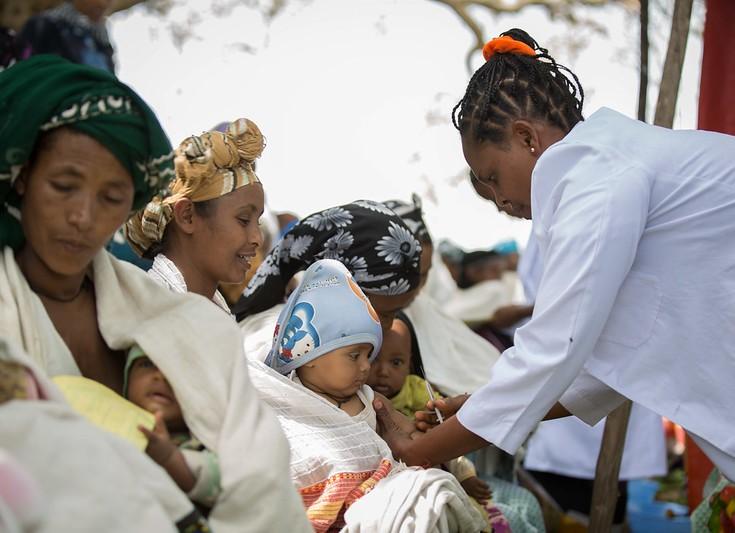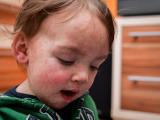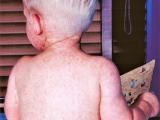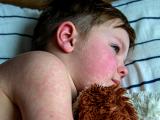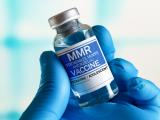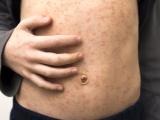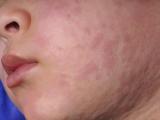Last year 140,000 people worldwide died from complications of measles infections, according to the latest data compiled by the World Health Organization (WHO) and the US Centers for Disease Control and Prevention (CDC).
In 2017, the WHO tracked 110,000 measles deaths. Most of measles-related deaths are in children under the age of 5.
"The fact that any child dies from a vaccine-preventable disease like measles is frankly an outrage and a collective failure to protect the world's most vulnerable children," said Tedros Adhanom Ghebreysus, PhD, director-general of the WHO in a press release on the report. "To save lives, we must ensure everyone can benefit from vaccines—which means investing in immunization and quality health care as a right for all."
According to the CDC, 2018's numbers represent a 167% global increase in cases compared with 2016, and estimated global measles mortality has increased since 2017.
Five countries—the Democratic Republic of the Congo (DRC), Liberia, Madagascar, Somalia and Ukraine—accounted for almost half of all measles cases in 2018. Four European countries, Albania, Czech Republic, Greece, and the United Kingdom, lost measles elimination status in 2018 and 2019, after each country saw re-established transmission of the virus. And this year, the United States recorded the most measles cases in 25 years.
"The causes of the measles resurgence during 2017–2018 are multifactorial and vary by country. Large sustained outbreaks in a few countries with weak immunization systems accounted for most reported measles cases during this time," researchers from the CDC said today in Morbidity and Mortality Weekly Report (MMWR). In countries like the UK and the United States, international travel has been linked to several recent outbreaks.
Measles vaccination efforts stagnated
Growing measles outbreaks worldwide in 2018 and 2019 paint a picture of vaccination stagnation, the WHO and CDC said. Because measles is so contagious, 95% of the population must be immunized to prevent outbreaks. In 2018, the WHO said 86% of children globally received the first dose of measles vaccine through their country's routine vaccination services, and fewer than 70% received the second recommended dose.
Those numbers, though better than data from 2000, have been relatively consistent since 2010. In 2018, 61% of countries saw more than 90% of their population with at least one dose of measles vaccine, an increase from 86 countries in 2000, but a decrease from 126 countries in 2012 and 2013, the CDC said.
Since 2000, annual reported measles incidence decreased 66%, and annual estimated measles deaths decreased 73%, but measles incidence increased once again in 2016, 2017, and 2018.
CDC researchers estimate that 19.2 million infants worldwide did not receive the first dose of measles vaccine in 2018.
"The six countries with the most unvaccinated infants were Nigeria (2.4 million), India (2.3 million), Pakistan (1.4 million), Ethiopia (1.3 million), Indonesia (1.2 million), and the Philippines (0.7 million)," the authors said.
The data mean that goals of controlling measles by 2015, as defined by the World Health Assembly in 2010 as having more than 90% of the population vaccinated, have not been met. And the trend of more measles cases reported in the last 2 years suggests few countries may be able to meet the objective of eliminating measles from five of the WHO's six global regions in 2020.
Measles deadlier than Ebola in DRC this year
In related news, the WHO announced today that 2.2 million children in North Kivu, DRC, the epicenter of an ongoing Ebola outbreak, will be vaccinated against measles in a 5-day campaign.
"While the Ebola outbreak in the DRC has won the world's attention and progress is being made in saving lives, we must not forget the other urgent health needs the country faces," said Matshidiso Moeti, MD, WHO's regional director for Africa. "This new vaccination campaign aims to protect children in North Kivu, as well as other parts of the country from a disease that is easily preventable with a vaccine."
Since the beginning of the year, the DRC has recorded more than 250,000 suspected cases and over 5,000 measles deaths mostly among children under 5 years. More people in the DRC have died from measles than Ebola this year.
The WHO said measles in the DRC is exacerbated by a highly mobile population, and a volatile region that prevents access to routine health care.
See also:
Dec 5 WHO press release
WHO measles factsheet
Dec 6 MMWR study
Dec 5 WHO North Kivu press release
